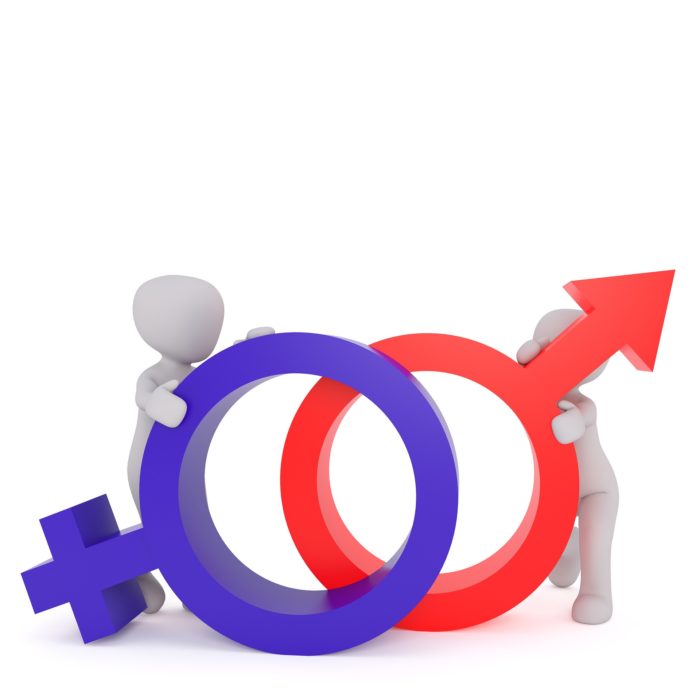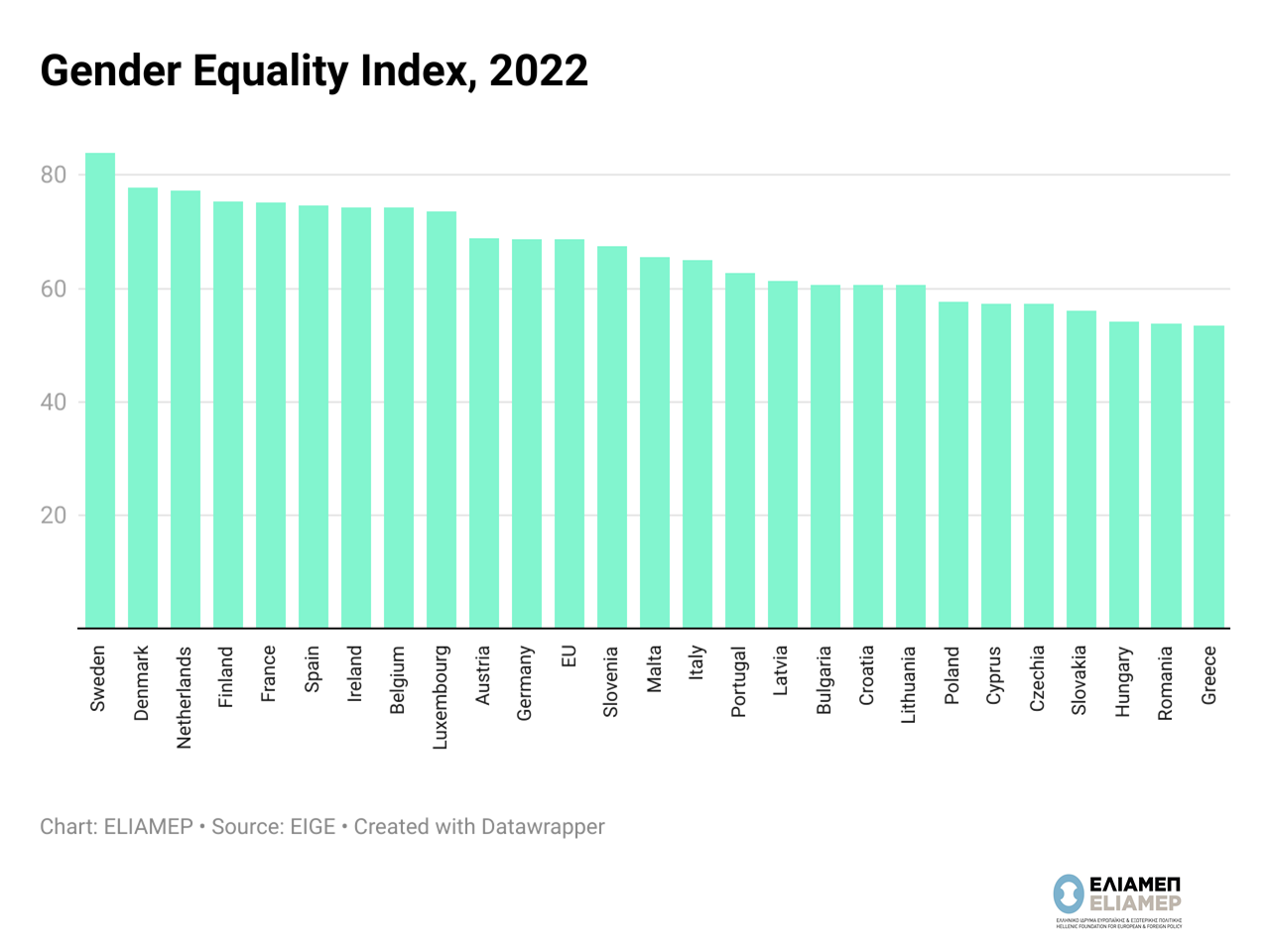The European Institute for Gender Equality has recently published its Gender Equality Index for 2022. The Gender Equality Index is a tool to measure the progress of gender equality in the EU and gives the EU and the Member States a score from 1 to 100 (where 100 = full equality between women and men). The Gender Equality Index score for the EU is 68.6 points out of 100 (5.5 points higher than in 2010). The top performing countries are Sweden, Denmark and the Netherlands. The worst performers are Hungary, Romania and Greece. Since 2010, Greece’s score has increased by 4.8 points, but with 53.4 out of 100 points, Greece ranks last in the EU in 2022 (27th out of 27 member states).
As the data show, gender inequalities in employment, education, and access to health services remain significant. Moreover, the COVID-19 pandemic has negatively affected progress in specific sectors. For example, while the score in the sub-domain of care activities reports a slight improvement (+ 3.7 points) since 2007, an online survey by the Institute for the period of the pandemic reveals that women took on more of the intensified informal childcare and housework demands (while schools and daycare centers remained closed). More particularly, the percentage of those who spent at least 4 hours per day caring for young children was 40% among women, compared to 21% among men (in the EU as a whole).
Despite the difficulties, the domain of power has seen the most improvement of all domains since 2010 (15.3 points). Compared to the past, women in the EU hold more key decision-making positions in major political, economic and social institutions. In Greece, the score in this domain increased compared to 2010 (6.5 points). However, gender inequalities are still strongly pronounced in the domain of power in which Greece ranks second to last. (Only Hungary performs worse).
According to 2022 data, the share of Ministers is only 15.5% in Greece (compared to 33.4% in the EU). In the National Parliament, women are 21%, compared to a European average of 33%. As for corporate boards of the largest nationally registered companies listed on stock exchanges, only 23% of the members were women (in the EU it is 31.6%). The same picture of low representation of women is recorded in board members of the National Central Bank (16.7% in Greece compared to 26.4% in the EU), but also in other institutions (e.g. research-funding organizations, media and sports etc.)
The so-called “Women on Boards” Directive aims to introduce transparent recruitment procedures in companies, so that at least 40% of non-executive director posts are occupied by the under-represented sex until 2026. In Greece, the National Action Plan for Gender Equality 2021-2025 contains important initiatives to increase the participation of women in positions of power, responsibility and leadership, while it also emphasizes the need to effectively implement the existing legislation. (For example, according to N4706/20, from 2021 listed companies in Greece must include women in their boards of directors at a rate of at least 25%). Our country’s slow progress in gender equality shows that efforts to promote gender equality must be strengthened, coordinated, and should remain among the government’s key priorities. The same effort should be made by companies and by social organizations.




